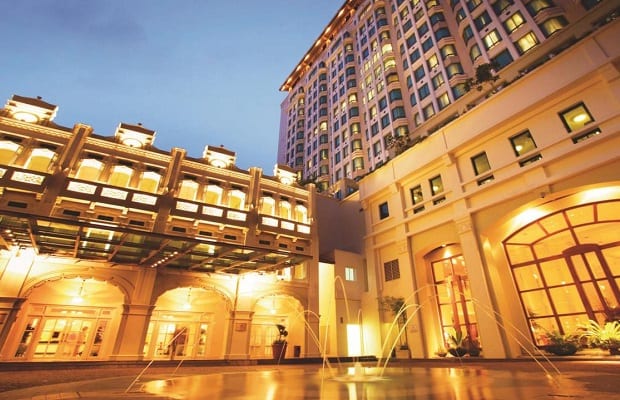
Frasers Hospitality Trust (FHT) is a stapled trust comprising Frasers Hospitality REIT and Frasers Hospitality Business Trust. FHT owns a portfolio of 15 hotels and serviced residences located across nine cities in Asia, Australia, and Europe. As of 31 December 2017, FHT’s portfolio was valued at S$2.16 billion.
I attended FHT’s annual general meeting to find out more about the Trust’s past financial year’s performance and its outlook for the year ahead.
Here are seven things I learned from the 2018 Frasers Hospitality Trust AGM.
1. Gross revenue increased 28.4% year-on-year to S$158.7 million and net property income (NPI) rose 15.3% to S$120.2 million. This was mainly due to the additions of Novotel Melbourne on Collins and Maritim Hotel Dresden to the portfolio, and better all-round portfolio performance. Australia and Singapore accounted for 41% and 21% of NPI respectively.
2. Distributable income rose 10.0% to S$93.5 million but distribution per stapled security (DPS) fell 3.5% to 5.0458 cents. The fall in DPS is due to the enlarged number of shares as FHT executed a rights issue to fund the A$237 million acquisition of Novotel Melbourne on Collins. Aptly named Colin Low, Head of Investment, added that the four-star hotel has the potential to be upgraded to five stars as it sits in a central location sharing a street with other five-star hotels like Westin, Sofitel, and InterContinental Melbourne.
3. Gearing ratio as at 31 September 2017 is 32.1% which is the lowest since FHT’s IPO. However, the Trust has a large tranche of debt (S$558.1 million) expiring in 2019. CEO Eu Chin Fen updated that FHT has since refinanced $110 million of this debt which will now expire in 2024. So as of 31 December 2017, FHT’s weighted average debt maturity has been extended to 2.61 years and 88.5% of borrowings are at fixed interest rates. S$449.2 million of borrowings remain set to expire in 2019.
4. A shareholder asked if FHT would consider developing new properties for future growth as FHT’s business trust structure allows them to freely undertake new developments. (In comparison, REITs can only undertake developments that cost up to 25% of its total asset size). The CEO explained that developing a new hotel would mean probably mean a dilution in DPS for shareholders as the project would see no returns for a few years (three years to build a hotel and a further two years for revenue to stabilise). So while a new development could spur capital growth, it is unlikely that FHT will undertake any as it has to provide a stable yield for shareholders. She added that the business trust gives FHT the flexibility to own and operate hotels which is not allowed under a REIT.
5. A shareholder wanted to know if Airbnb has negatively impacted FHT. The CEO said the impact has been limited so far as Airbnb caters primarily towards the leisure traveller. Business travellers, on the other hand, tend to prefer hotels for their convenience and security. Airbnb also faces a number of regulatory hurdles (e.g. Singapore has a minimum three-month lease requirement).
6. The management is ‘cautiously optimistic’ about its Singapore growth in 2018. FHT’s gross operating profit from its Singapore portfolio was flat for 2017. Mark Rohner, Head of Asset Management, said that banquet revenue from Hotel InterContinental in 2017 was poor mainly due to fewer bookings for weddings and meetings. But bookings for 2018 are much better and he expects banquet performance and overall revenue to improve.
7. Low revealed that FHT has been monitoring New Zealand for some time, and specifically Auckland. The city attracts a good mix of leisure and business travellers, unlike other cities which are more popular only with tourists. However, FHT will only be interested when a good, reasonably priced, and yield-accretive acquisition appears.
Liked our analysis of this AGM? Click here to view a complete list of AGMs we’ve attended »




MrAdam Wong, appreciate your posting of Fraser Hospitality Trust to readers after attending its AGM.The stock market has crashed again-notably led by the DOW.Is there still hope for those investors who are keen to put their savings into stocks now or must they wait for better times.
Hi SW,
You’re most welcome. Falling prices do not necessarily mean that one should jump in and invest in the stock market. It could still be overvalued and there are other factors to consider as well.
Investing also requires that you have your personal finances in order, so you know how much you can comfortably set aside for investments while keeping your downside protected.
I highly suggest you read our ‘How to Start Investing’ guide which will give you a good overall idea of what you need to do if you want to invest in stocks.
https://fifthperson.com/how-to-start-investing-in-singapore-a-practical-guide-for-beginners/